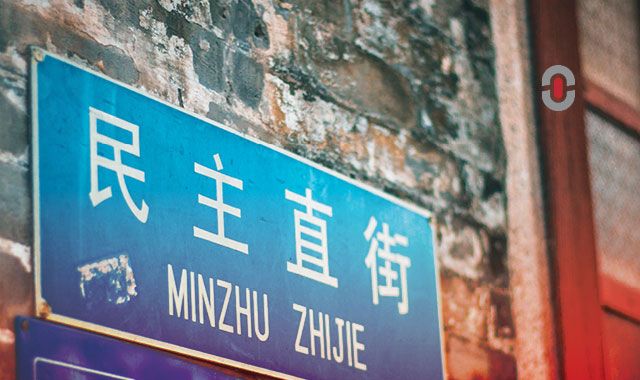Organizations which are seeking Cantonese translations are usually very well aware of their target audiences. The reasons for this are that Cantonese is a highly peculiar language that is spoken by a set number of people across the world. Although Cantonese speakers generally understand Standard Mandarin, the opposite is not necessarily true. This means that Mandarin speakers in Mainland China and Taiwan generally do not understand Cantonese. After all, its system of expressing written characters is quite different from Mandarin and Mandarin speakers, although they may be able to pick up some words, will not always be able to understand the full context of the spoken words. As a result, Cantonese has some important characteristics in its own right and Cantonese translations should be performed by qualified professionals. To find out more about the language, and in which cases it can be used and translated, take a look below.
What is Cantonese, who speaks it, and who uses it for writing?
Cantonese is a minority dialect of Chinese. It is generally spoken by people in Guangzhou Province in southern China (formerly known as Canton). However, its usage has spread to locations including Hong Kong, Macau, and other international communities, which are home to Chinese nationals such as those in the United States. However, homogeneity in terms of these communities cannot be guaranteed and assumptions should not be made about Cantonese being used by speakers who may possibly speak Mandarin instead.
Cantonese, as mentioned above, is therefore primarily used by natives of Hong Kong and Macau. In its written form, there are contradictions in terms of where the language appears and has the most utility. For example, some claim that Cantonese may be used in schools and official government documents. Meanwhile, others claim that the language is primarily used for short pieces of text such as advertising slogans and in informal text messages between individuals as opposed to using it officially on websites, for marketing purposes, in official legal or business documents and correspondence, etc.
Therefore, when it comes to a Cantonese translation, the professional translator involved must be well aware of these contradictions and ensure accuracy for both the client and the target audience.
Cultural, transcription, and subtitling issues with Cantonese
Translating English to Cantonese or translating Cantonese to English is a complex task. This is because of the cultural and technical aspects related to a Cantonese translation. As a starting point, it must be remembered that Cantonese is a Chinese dialect and that it is mainly used by a smaller Chinese population. Further to this, Traditional Mandarin (generally in its simplified form) is understood by Cantonese speakers. In addition, because written Cantonese is generally used in informal settings (and is avoided for government, legal, business, or official correspondence and documentation), the language is highly particular.
As a result, transcriptions in Cantonese to English or English to Cantonese must use either Cantonese symbols only or opt for the Simplified Mandarin option because Cantonese speakers and readers generally understand the latter.
When it comes to subtitling, as has become highly popular over the past few years with the proliferation of foreign media in Hong Kong and Macau, it will be up to the director’s discretion as to whether or not to use written Cantonese to depict the script spoken by the actors. The primary determinant of whether such a Cantonese translation will take place is the target audience. If the transcription is more informal and used in a “friendly” setting, then written Cantonese should be used. However, if the target audience is more formal, then Simplified Mandarin should be employed to reach a wider target audience using the appropriate formal tone intended.
Should you always go for written Cantonese?
Using written Cantonese is a highly debatable question when it comes to Cantonese translations. There are some rules of thumb to look out for when embarking on this type of project. For example, here are some general guidelines to use when embarking on a Cantonese translation:

- Bear in mind that Cantonese speakers generally use the same writing system as other Chinese speakers. This means that they’re more likely to use Traditional Chinese as opposed to Simplified Chinese. However, there are multiple exceptions to this rule.
- Most Mandarin speakers do not understand Cantonese. However, many Cantonese speakers understand and know Mandarin with differing language proficiencies.
- If you require a Cantonese translation, bear in mind that this should be done in a more informal setting and primarily for an audience in Hong Kong. Awareness and knowledge of the local culture and conventions there is critical for a Cantonese translation project.
- If you’d like to translate into Standard Chinese for Hong Kong, the translator involved in the Cantonese translation project should be familiar with the idioms and conventions used in that location.
- If a translation is required from spoken Cantonese, you will need to use a Cantonese speaker who is familiar with the local cultural and linguistic nuances. The same is true when translating from written Cantonese or transcribing from Cantonese, preferably by a Hong Kong native.
- For translations from Standard Chinese as used in Hong Kong, a translator who is familiar with Chinese and who is possibly a Hong Kong native will be preferable.
- A further point is related to translations that serve overseas Chinese communities. In most cases, Standard Chinese should be used because these communities are rarely exclusively speakers of Cantonese.
- Finally, if you have material that is written in Chinese for Hong Kong, this is generally quite easily localized for China, Taiwan, and other Chinese-speaking areas. Often, with minimal changes required. On the other hand, Cantonese translations written in Cantonese will require a complete re-translation for the intended target audiences.
What kind of translator should you look for?
When it comes to an English-to-Cantonese translation, it’s crucial to be aware of several characteristics and criteria. For example, you should be aware of where your target audience is (Hong Kong, Macau, overseas Chinese communities, etc.), their age (this will determine the formality of the translation), the primary means of communication (audio-visual material vs. written material), and the cultural nuances that a Cantonese translation requires.
As a result, if you are looking for a Cantonese translator, this person should ideally be a native of Hong Kong as this is where most Cantonese speakers may be found. In addition, this translation professional should be aware of local customs and linguistic nuances, and also be familiar with Standard Mandarin in order to localize content for both mainland China and for local audiences who typically use this version of Mandarin to communicate in written form in more official correspondence and documentation.
Concluding remarks: Cantonese is not as straightforward as initially thought
Because Cantonese is a highly spoken language, as opposed to a written language (although it does have a written form that differs from Mandarin), Cantonese translations must always take into consideration the who, what, and where the translation will be used for.
The target audience is crucial because the more informal and friendly Cantonese is more well suited for television or audio-visual types of output. Whereas advertising materials that are shorter than 100 words can also be translated into Cantonese. Any translation that involves more than that should rather use Simplified Chinese instead.
Finally, it’s crucial to look at the location where the translation will be used. A professional translator should check if it will be used in Hong Kong, Macau, or overseas communities. These subtle differences are nevertheless important in a quality translation project. And hence, a reliable translation partner will be best suited for your Cantonese translation needs.
